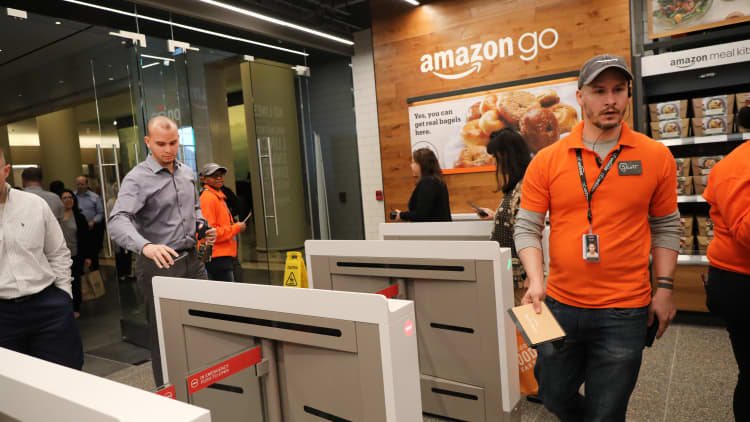The next Outback Steakhouse you walk into could be more similar to an Amazon Go store than you would think.
The casual-dining chain, which is owned by Bloomin' Brands, is piloting machine learning technology from Presto at several restaurants operated by one of its franchisees, Evergreen Restaurant Group.
Cameras, discreetly placed in the lobby, capture hosts, waiters and customers and analyze their interactions to improve customer satisfaction. The technology can track long wait times, the cleanliness of lobbies and the number of customers who leave without being seated or greeted. Managers and staff members can receive notifications in real time, before customers leave angry Yelp reviews.
The Outback pilot focuses on the lobby but could expand to dining rooms, the kitchen and curbside pickup areas.
Presto founder and CEO Rajat Suri said the technology helps restaurants correct their blind spots. He compares it to coaching a football game without being able to see the actual game.
"Managers can't be everywhere at all times," Suri said in an interview.
Suri, who also co-founded ride-sharing company Lyft, said he is "personally obsessed with connecting tech with primitive physical experiences," like transportation or restaurants. The machine learning technology used by Presto is mature in other industries, he said. Cashierless Amazon Go stores, for example, use machine learning to track who is entering, leaving and buying items.
Presto's data captured by cameras is automatically deleted after 30 days, and no personally identifiable information is tracked or recorded.
"It's very important to us that the whole ecosystem feels very secure about this tech," Suri said.
Besides privacy concerns, tracking facial expressions would mean too much data to sort through, he said.



